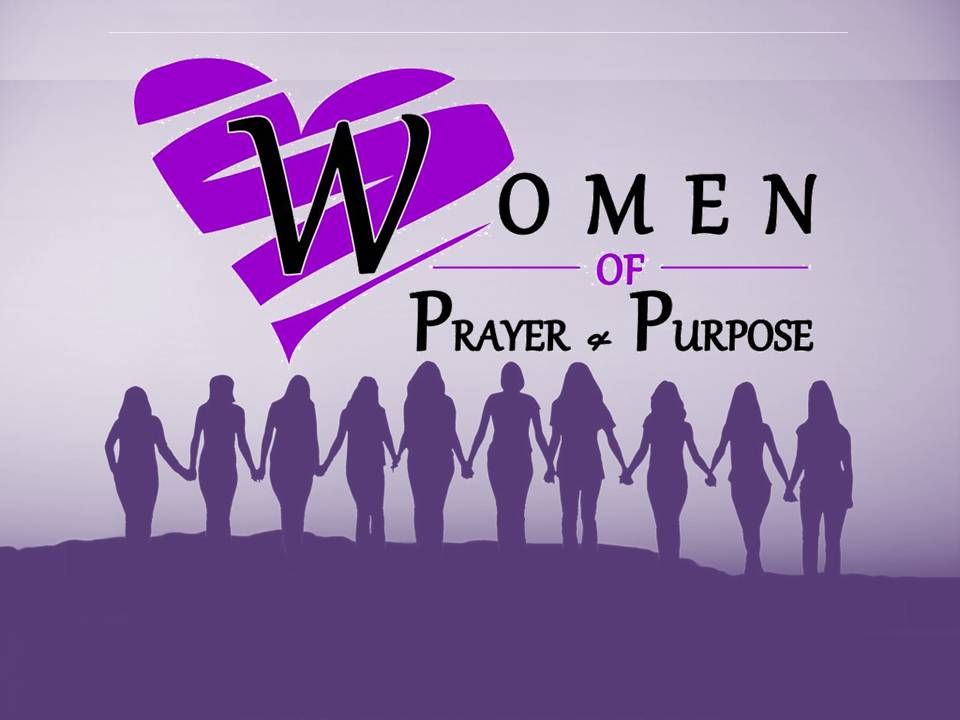The Bible has scriptures that indicate resilience, strength, faith, and leadership. These scriptures are a testament to the roles played by women, which laid the foundation of women’s ministry today. On a distant examination, the role of women in several cultures and traditional environments seems clipped.
But on a closer look into the scriptures, it is evident that women had more nuanced and empowering societal roles. From Deborah to Mary Magdalene, the Christian scriptures provide enormous instances to support the pivotal role played by women in the propagation and progression of faith.
The following compilation of scriptures that support women’s ministry and their role in the propagation of faith is a bridge to the rich heritage of leadership and strength.
Scriptures for Women’s Ministry

1. Proverbs 31:26: “She opens her mouth with wisdom, and the teaching of kindness is on her tongue.”
This verse illustrates that women are both wise and capable of teaching others, highlighting the role of women as instructors and guides in matters of faith and life.
2. Acts 18:24-26: “Now a Jew named Apollos, a native of Alexandria, came to Ephesus. He was an eloquent man, competent in the Scriptures. […] He began to speak boldly in the synagogue, but when Priscilla and Aquila heard him, they took him aside and explained the way of God more accurately.”
This account underscores that Priscilla played a vital role in teaching and clarifying doctrine, demonstrating the significance of women in early Christian teaching.
3. Romans 16:1-2: “I commend to you our sister Phoebe, a deaconess of the church at Cenchreae, that you may welcome her in the Lord in a way worthy of the saints, and help her in whatever she may require from you, for she has been a helper of many and of myself as well.”
Here, Paul recognizes the leadership role of Phoebe, underscoring the importance of women in church leadership.
4. Acts 2:17-18: “‘And in the last days it shall be, God declares, that I will pour out my Spirit on all flesh, and your sons and your daughters shall prophesy, and your young men shall see visions, and your old men shall dream dreams; even on my male servants and female servants in those days I will pour out my Spirit, and they shall prophesy.'”
This verse from Acts emphasizes that both men and women will be empowered by the Holy Spirit to prophesy, showing that God’s calling and empowerment extend to women just as much as men.
5. Galatians 3:28: “There is neither Jew nor Greek, there is neither slave nor free, there is no male and female, for you are all one in Christ Jesus.”
This fundamental New Testament verse asserts that, in Christ, traditional distinctions—including gender—don’t determine one’s value or capability. In the body of Christ, all are equal.
6. Exodus 15:20: “Then Miriam the prophetess, the sister of Aaron, took a tambourine in her hand, and all the women went out after her with tambourines and dancing.”
Miriam, recognized as a prophetess, led the women of Israel in worship after their deliverance from Egypt, showing her role as a leader and worshiper.
7. Luke 8:1-3: “Soon afterward he went on through cities and villages, proclaiming and bringing the good news of the kingdom of God. And the twelve were with him, and also some women who had been healed of evil spirits and infirmities: Mary, called Magdalene, […] and Joanna, the wife of Chuza, Herod’s household manager, and Susanna, and many others, who provided for them out of their means.”
This passage indicates that women followed Jesus and played a crucial role in supporting His ministry.
8. Luke 10:39-42: “And she had a sister called Mary, who sat at the Lord’s feet and listened to his teaching. But Martha was distracted with much serving. […] But the Lord answered her, ‘Martha, Martha, you are anxious and troubled about many things, but one thing is necessary. Mary has chosen the good portion, which will not be taken away from her.'”
Mary is seen sitting at Jesus’ feet, a traditional posture of a disciple, indicating women were disciples of Jesus and engaged directly in theological discussions.
9. Romans 16:7: “Greet Andronicus and Junia, my kinsmen and fellow prisoners. They are well known to the apostles and were in Christ before me.”
Junia is recognized as “well known to the apostles,” suggesting her significant role in the early Christian community.
10. 2 Timothy 1:5: “I am reminded of your sincere faith, which dwelt first in your grandmother Lois and your mother Eunice and now, I am sure, dwells in you as well.”
This passage highlights the faith and spiritual influence of Timothy’s grandmother and mother, indicating the spiritual legacy women can impart.
11. Acts 21:9: “He had four unmarried daughters, who prophesied.”
The daughters of Philip the Evangelist were prophetesses, underlining that women had spiritual gifts and played vital roles in the early church.
12. Acts 9:36: “Now there was in Joppa a disciple named Tabitha, which, translated, means Dorcas. She was full of good works and acts of charity.”
Tabitha (or Dorcas) was a disciple known for her charity acts, emphasizing women’s vital roles in the early church.
13. Micah 6:4: “For I brought you up from the land of Egypt and redeemed you from the house of slavery, and I sent before you Moses, Aaron, and Miriam.”
Miriam is listed alongside Moses and Aaron, emphasizing her significance in Israel’s spiritual journey.
14. Luke 2:36-38: “And there was a prophetess, Anna, the daughter of Phanuel, of the tribe of Asher. She was advanced in years, having lived with her husband for seven years from when she was a virgin and then as a widow until she was eighty-four. She did not depart from the temple, worshiping with fasting and prayer night and day. And coming up at that very hour, she began to give thanks to God and to speak of him to all who were waiting for the redemption of Jerusalem.”
Anna, a prophetess, recognized Jesus as the Messiah and spoke about Him to others, underscoring her spiritual discernment and the role of women in prophetic ministry.
15. 2 Kings 22:14-20: When King Josiah found the Book of the Law and sought understanding about its contents, it was Huldah, the prophetess, to whom the king’s men went. Huldah gave them a word from the Lord, playing a pivotal role in a significant religious reform in Israel.
16. Acts 1:12-14: “Then they returned to Jerusalem from the mount Olivet, near Jerusalem, a Sabbath day’s journey away. And when they had entered, they went up to the upper room, where they were staying, […] All these with one accord were devoting themselves to prayer, together with the women and Mary the mother of Jesus, and his brothers.”
This verse notes women’s presence and active participation in the foundational prayer meetings of the early Christian church.
17. Romans 16:3-4: “Greet Prisca and Aquila, my fellow workers in Christ Jesus, who risked their necks for my life, to whom not only I give thanks but all the churches of the Gentiles give thanks as well.”
Prisca (or Priscilla) is mentioned alongside her husband Aquila as Paul’s fellow worker, indicating her significant role in the ministry.
18. 1 Corinthians 11:5: “But every wife who prays or prophesies with her head uncovered dishonors her head since it is the same as if her head were shaven.”
While this verse is often cited in discussions about head coverings, it also implicitly acknowledges that women prayed and prophesied in early Christian gatherings.
19. Ruth 1-4: The Book of Ruth provides a remarkable story of loyalty, faith, and redemption. Ruth’s unwavering commitment to her mother-in-law Naomi and her decision to follow the God of Israel make her an exemplar of faith.
20. Romans 16:12: “Greet Tryphena and Tryphosa, those women who work hard in the Lord. Greet my dear friend Persis, another woman who has worked hard in the Lord.”
Paul acknowledges various women for their diligent work in the Lord, indicating their active involvement and significant contributions to ministry.
21. Acts 12:12: “When he realized this, he went to the house of Mary, the mother of John whose other name was Mark, where many were gathered together and were praying.”
This verse shows Mary’s pivotal role as a gathering place for believers in the early church, signifying her commitment and support to the early Christian community.
22. Titus 2:3-5: “Older women likewise are to be reverent in behavior, not slanderers or enslaved people to much wine. They are to teach what is good and train the young women to love their husbands and children, to be self-controlled, pure, working at home, kind, and submissive to their husbands so that the word of God may not be reviled.”
Here, older women are entrusted with mentoring younger women, indicating their role as teachers and leaders within the community.
23. 2 Timothy 4:19: “Greet Prisca and Aquila, and the household of Onesiphorus.”
This further mention of Prisca (often called Priscilla) reinforces her significant role in Paul’s ministry and the early Christian community.
24. Acts 5:14: “And more than ever believers were added to the Lord, multitudes of both men and women,”
This verse underlines the active faith and conversion of many women in the early church.
25. Luke 13:10-13: “Now he was teaching in one of the synagogues on the Sabbath. And behold, a woman had had a disabling spirit for eighteen years. She was bent over and could not fully straighten herself. When Jesus saw her, he called her over and said, ‘Woman, you are freed from your disability.’ And he laid his hands on her, and immediately she was made straight, and she glorified God.”
This passage highlights Jesus’ compassion towards women and showcases the woman’s response. After being healed, she immediately glorified God. Her public display of faith and gratitude in a synagogue is a testament to women’s vital role in proclaiming and demonstrating faith. This example emphasizes the public acknowledgment and celebration of God’s work in the lives of women and their active role in the worship community.

Summing It Up
By now, it is evident that there are not just one but many scriptures to support women’s ministry. These scriptures highlight the role of women and their significant position and role in propagating faith. They highlight women’s divine purpose and calling.
Scriptural support serves as proof of the deep roots of women’s ministry. These scriptures acknowledge the role of women and the need for women’s ministry.
Recognizing the scriptural support of women’s ministry in modern times will pave the way for a more inclusive spiritual community. The need for women’s ministry is imperative for spreading and demonstrating faith.





